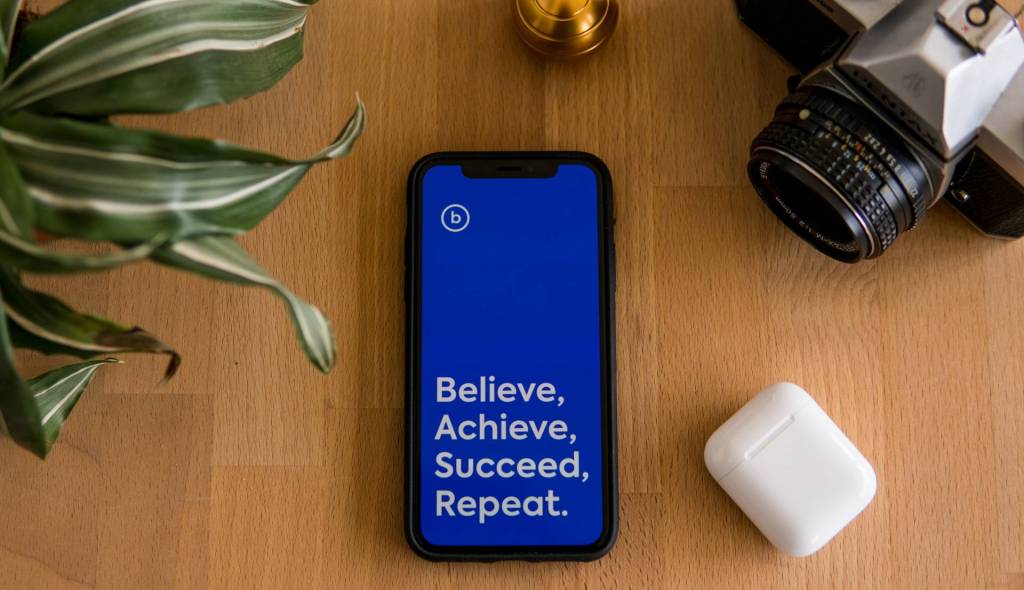 Coaching ability is a leadership skill that almost everyone can benefit from. Whether you are managing a large organization of employees or you are a solopreneur that spends all day talking to potential clients – we can’t understand the power of the words we use during “coaching” opportunities. The last thing leaders want to do is disconnect themselves from their team-members when there is an opportunity for improvement. Unless you have a great mentor or are part of a leadership program at your company, simple re-phrasing techniques can escape our “conversation toolbox.” Below are three phrases we tend to default to in conversations that can become relationship dis-connectors.
Coaching ability is a leadership skill that almost everyone can benefit from. Whether you are managing a large organization of employees or you are a solopreneur that spends all day talking to potential clients – we can’t understand the power of the words we use during “coaching” opportunities. The last thing leaders want to do is disconnect themselves from their team-members when there is an opportunity for improvement. Unless you have a great mentor or are part of a leadership program at your company, simple re-phrasing techniques can escape our “conversation toolbox.” Below are three phrases we tend to default to in conversations that can become relationship dis-connectors.
“Why didn’t you…?”
Who wants to listen to a leader that wants to kick off a meeting with “why didn’t you…?” Although this seems elementary, so many managers or leaders will use this phrase and it is often ineffective because it will cause a disconnection of focus.
By starting with, “why didn’t you?”, the focus is now around the excuse or rationalization of the past situation and what the present consequences are going to be instead of focusing on improving the employee’s condition and self-realization for future success. Plus, these conversations can be very redundant for you as the leader if you are frequently having them!
Instead of being the broken record of saying, “Why didn’t you…?” use the phrase “What will help you better achieve this next time?” After they state whatever they need to happen, make sure you get a confirmation statement by asking, “So if you had _____________, then this result will happen?” This will allow us to understand the root cause of the issue.
If this situation reoccurs after checking in, (or if the request in the previous question doesn’t carry any weight), then you want to test the priority level of the result for this employee. Test the importance of the result to the person by simply asking, “How important is – result – to you and your career?” By phrasing it this way, the employee will either realize they need to make some changes or it may become evident that you need to make some changes in either connecting the results to the big picture or… make a change to your personnel!
“You should have…”
Another sentence that will have your team members check out from listening to you is the “time machine” approach where the leader says “you should have.” We are addressing mistakes so that they don’t happen again and the team member learns from them. Instead of going for the “you should have approach” use a crystal ball.
Coaching the person through how they would approach the situation differently in the future is the better device. The key is to not give them the answer. Many leaders know enough to substitute “you should have” with “next time you should…” This is a step better but not the best answer for helping your team members change their behavior.
Instead ask, “if this situation happens again, how would you handle it differently?” This way they are engaged in the dialogue and need to think. If they state the correct way to handle it in the future, they are going to feel more confident and likely to do it because it was “their idea.” If their response is still wrong, then it allows you to educate them on other options. Regardless, they are thinking and learning versus checking out of the conversation because it started with “you should have.”
“Do you understand?”
People don’t want to admit when they don’t understand. They don’t want you to think they aren’t capable or smart enough to comprehend what’s going on. This is especially true with an employee when speaking to a manager that they are trying to impress. They might not have the confidence to say they do not understand or to ask you to re-explain it. This may also be the case if you are a sales professional explaining a service to a potential client.
A more altruistic stance is to simply check in with your clients or employees by taking a ”time out” after important presentations or task initiations to make sure you are both on the same page. This is a good opportunity for the leader to offer up another way to educate the employee or client. “Am I making sense or would it be helpful if I lay it out in another way?” “Am I explaining this clearly or do you want me to review a few sections again?” Don’t assume your team members understand the task or why the task is important the first time they hear it.
These simple changes in your leadership conversations can help you to better connect and grow your team members or relationships with your clients.
For more on the topic, reach out at: er@thegrowthgame.com
About
Eddy Ricci, Jr., has been labeled as “the emerging expert in developing Gen Y sales professionals” by the chairman of Publicis Kaplan Thaler and is also noted as “understanding what motivates Gen Y sales teams. He is on my radar and should be on yours” by international speaker and NY Times bestselling author, Erik Qualman. Eddy is the director of a unique training and development collaborative platform that services financial planning firms in the northeast where he has arguably worked with more Gen Y financial professionals than anyone in the country over the past four years. He is the founder of The Growth Game, LLC. ,a professional development company and has authored a book that holds the same title. Eddy is a certified coach and specializes in helping professionals develop sales skills, leadership approaches and implement business development activity systems. WWW.THEGROWTHGAME.COM











